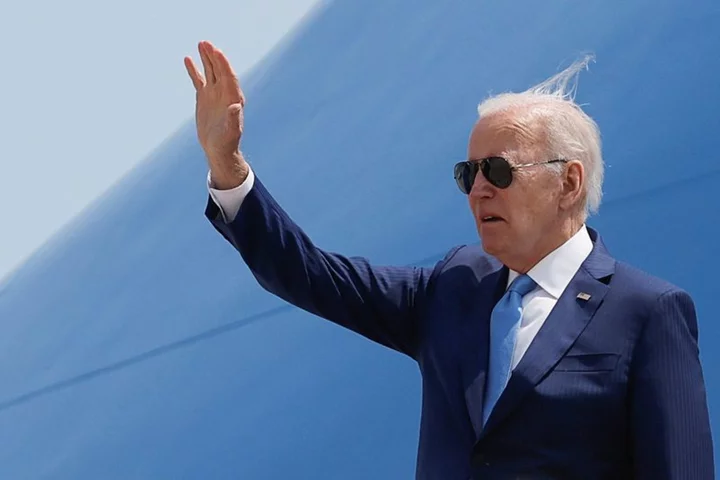WASHINGTON U.S. President Joe Biden and House of Representatives Speaker Kevin McCarthy, the top Republican in Washington, hope to finalize a deal on the debt ceiling after Biden returns from the Group of Seven meeting in Japan on Sunday.
The debt ceiling bill Republicans have passed in the House and Democrat Biden's 2024 budget are far apart in terms of spending, taxes and other measures. But a vague outline of what may be in a deal, and what will not, has slowly begun to take shape.
WORK REQUIREMENTS
Republicans are demanding tougher work requirements for some federal aid programs, like SNAP food assistance. This has raised concerns among Democrats that low-income Americans would suffer. Biden on Wednesday said he is open to some added work requirements in limited cases "but not anything of consequence." He has ruled out changes in particular to Medicaid and TANF (Temporary Assistance for Needy Families) programs.
PERMITTING CHANGES
A compromise is possible on reforming the process for energy permits and White House officials say it is being actively discussed. The White House has called on Congress to pass permitting legislation that would help speed up clean energy and fossil fuel projects. Republicans have made permitting reform a priority.
NO NEW TAXES?
Biden told reporters Tuesday, after meeting with McCarthy in the Oval Office, that Republicans are opposed to raising more tax revenues as a way to pay for government programs. White House officials say they have brought up proposals like increasing taxes on the wealthy and closing tax loopholes for the oil and pharmaceutical industries, but Republicans have rejected the ideas.
SPENDING CUTS
The two sides remain far apart on where to cut spending in the federal budget. A House Republican bill would cut 2024 U.S. discretionary spending back to the 2022 level of $1.664 trillion and limit subsequent annual increases to 1% for a decade. The White House's 2024 budget request proposes $1.9 trillion in discretionary spending - a 9.4% increase followed by annual increases averaging 1% over a decade. The discretionary spending proposals would add $2.23 trillion to deficits over 10 years, offset by tax increases.
The White House has for the most part ruled out Republican spending cuts. But Republicans are insistent that any debt ceiling deal will have to including spending cuts, and negotiations continue on this front.
FUTURE CAPS?
Republicans would like to cap federal spending for 10 years. The White House has countered with a proposal for capping spending for two years.
(Reporting by Heather Timmons and Steve Holland; editing by Grant McCool)

